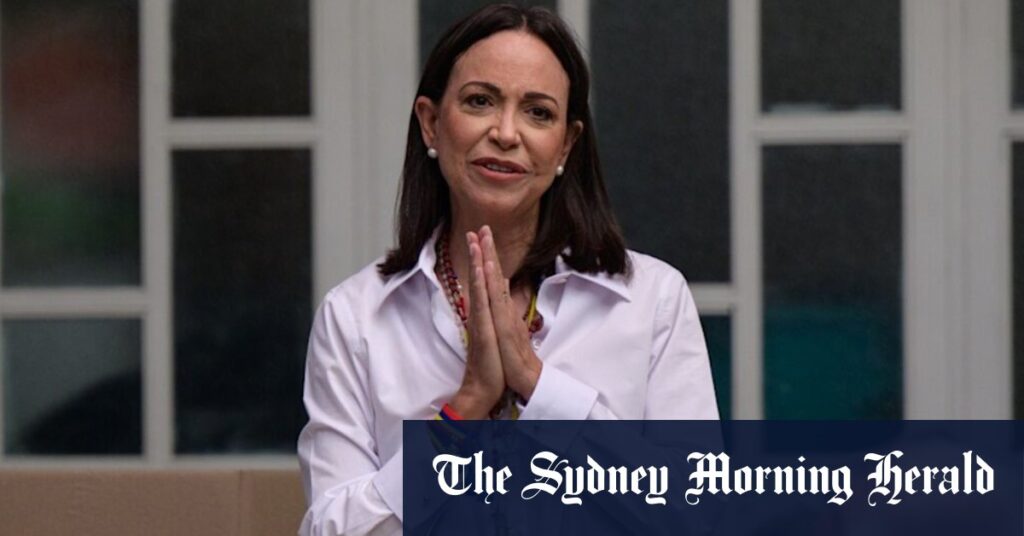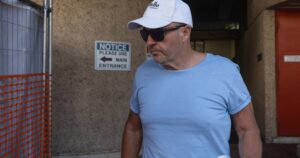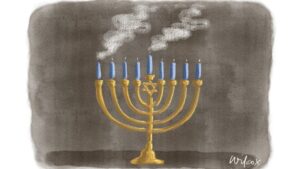
London: Venezuelan peace campaigner Maria Corina Machado has been awarded the Nobel Peace Prize, following an intense lobbying campaign to nominate US President Donald Trump for his efforts in the Middle East. Machado’s recognition comes as a surprise to some, given the high-profile push for Trump to receive the accolade for his role in attempting to secure peace in Gaza.
Trump has openly expressed his desire to win the prize, frequently stating that he believes he deserves it. However, the Nobel Committee opted to honor Machado, who is currently in hiding in Venezuela. Despite the risks, she has remained in her homeland, advocating for free and fair elections for over two decades, even as millions of Venezuelans have fled the country’s autocratic regime.
Machado’s Journey and Struggles
Born in 1967, Maria Corina Machado trained in engineering and finance before transitioning into politics in 2002. Her political journey has been fraught with challenges. Last year, she gained significant support as an opposition candidate for the Venezuelan presidency, only to be barred from running by the government. In August of the same year, she went into hiding, continuing her fight for democracy from the shadows.
Nobel Committee chair Jorgen Watne Frydnes lauded Machado as a beacon of hope, stating, “Maria Corina Machado is one of the most extraordinary examples of civilian courage in Latin America.” He further emphasized her role in uniting a once-divided political opposition around the common goal of achieving free elections and representative governance.
Trump’s Nobel Aspirations
In contrast, President Trump, when asked about his chances of winning the prize, highlighted his efforts in ending conflicts, including the one in Gaza, but maintained that his actions were not motivated by the desire to win an award. “They’ll have to do what they do. Whatever they do is fine,” he remarked about the Nobel Committee’s decision-making process.
“I know this: I didn’t do it for that, I did it because I saved a lot of lives.” — Donald Trump
Support for Trump’s nomination came from notable figures, including Israeli Prime Minister Benjamin Netanyahu and Egyptian President Abdel Fattah el-Sisi, both of whom publicly endorsed him for the prize. Despite this, the Nobel Committee’s decision remained independent, focusing on Machado’s enduring contributions to peace and democracy.
Controversies and Criticisms
Trump’s claims of ending eight wars have been met with skepticism. Critics point out ongoing conflicts, such as the war between Congo and Rwanda, and question his role in resolving tensions between India and Pakistan. Nonetheless, Trump received endorsements from Armenian Prime Minister Nikol Pashinyan and Azerbaijani President Ilham Aliyev for his involvement in their peace process.
The Nobel Peace Prize, awarded by a committee of five at the Norwegian Nobel Institute in Oslo, is a prestigious accolade with a storied history. The committee members are elected by the Norwegian parliament, linking them to the country’s political landscape. Frydnes, the current chair, is a seasoned human rights advocate with experience in organizations like Medecins Sans Frontieres.
Legacy and Future Implications
This year’s award continues a tradition of recognizing individuals and groups who have made significant contributions to peace. Last year, the prize was awarded to Nihon Hidankyo, a group of survivors from the Hiroshima and Nagasaki bombings. Previous laureates include Iranian equality champion Narges Mohammadi and Belarusian human rights advocate Ales Bialiatski.
Alfred Nobel’s will stipulates the prize should honor those who have done the most for “fraternity between nations, for the abolition or reduction of standing armies and for the holding and promotion of peace congresses.”
As the world watches, Maria Corina Machado’s Nobel Peace Prize win not only highlights her personal courage but also shines a spotlight on the ongoing struggle for democracy in Venezuela. Her recognition may inspire further international support for democratic movements worldwide.
Stay informed with our foreign correspondents’ insights on global headlines by signing up for our weekly What in the World newsletter.







